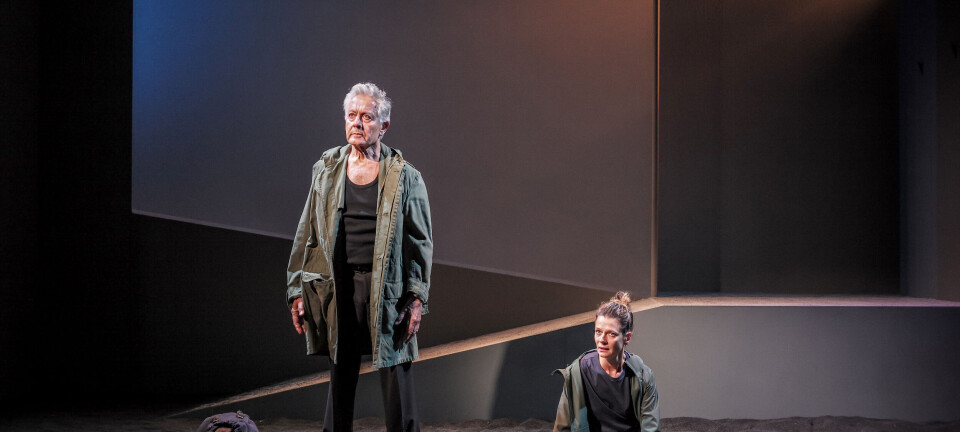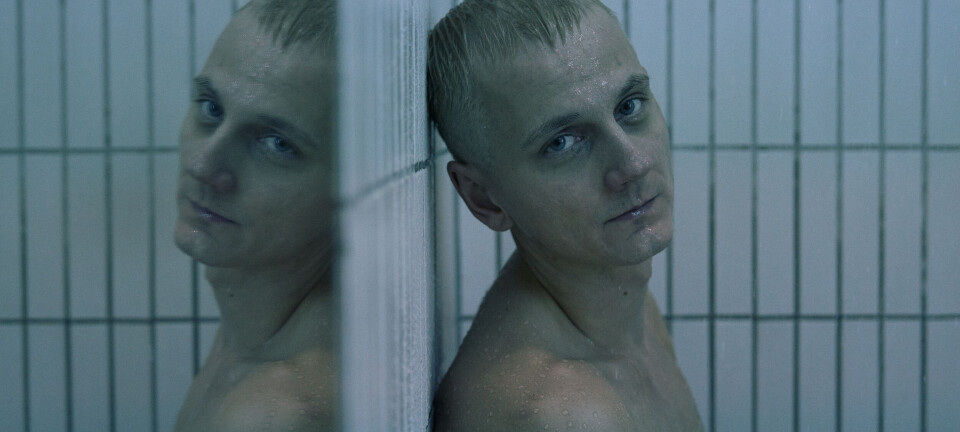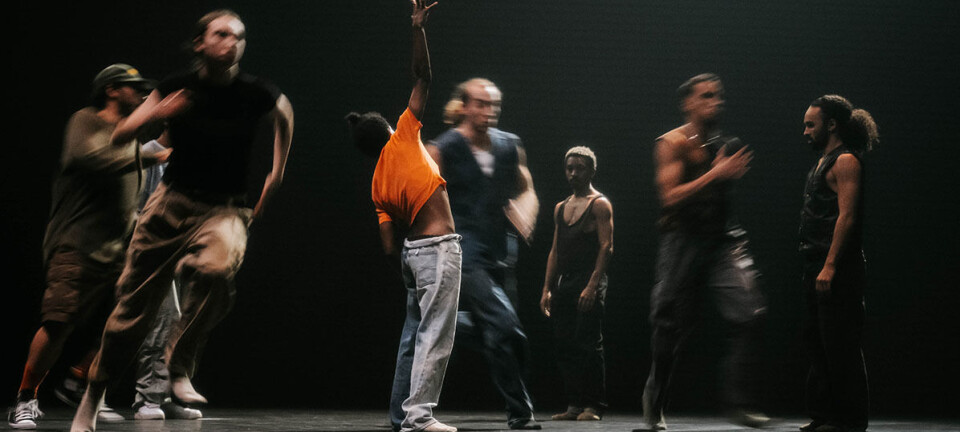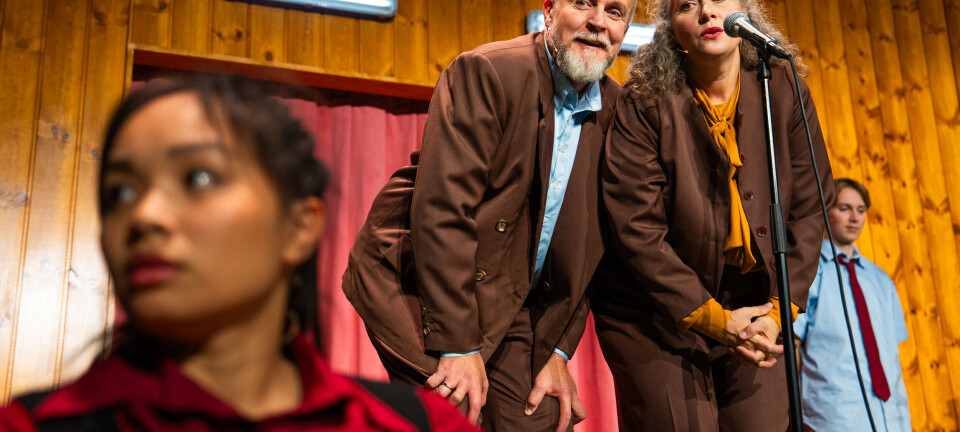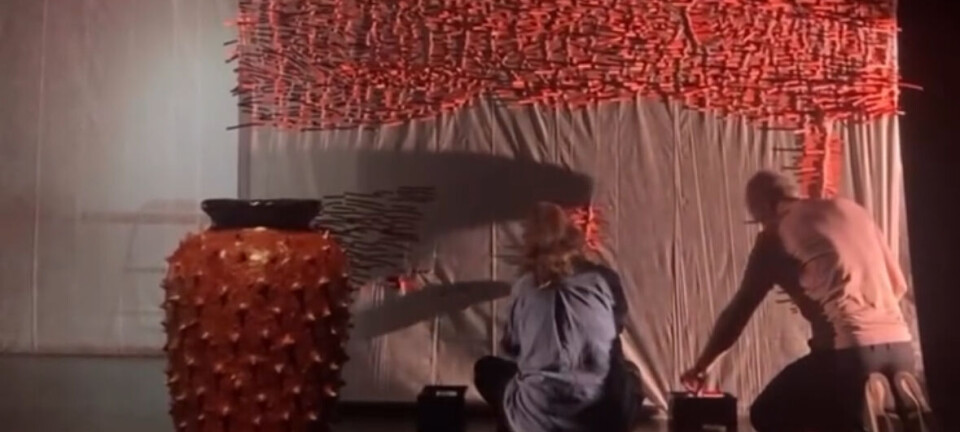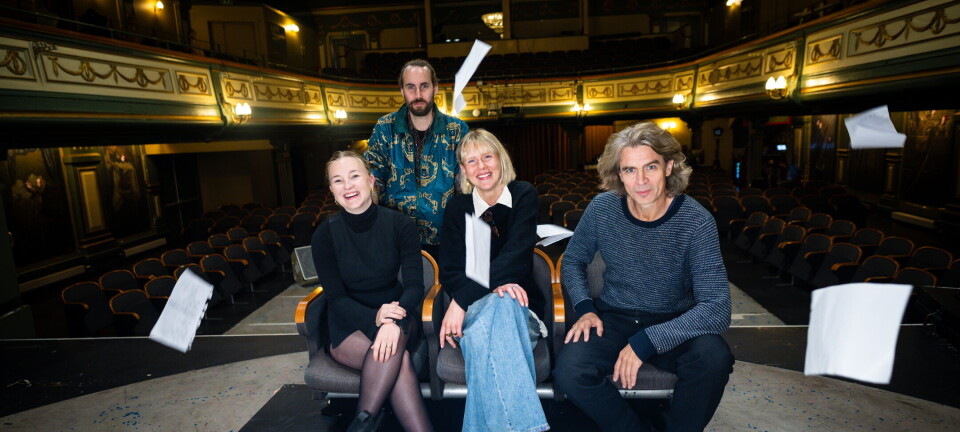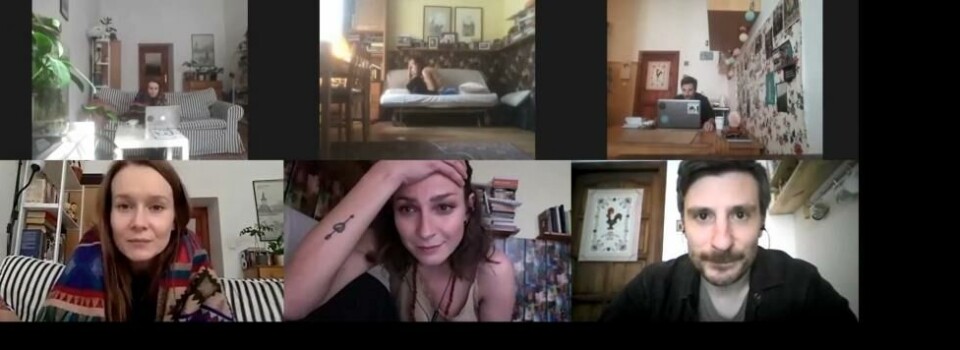
A lesson in survival for Polish theatre
In Poland, the coronavirus pandemic acted like calling a bluff in poker, revealing the imperfections of the national theatre system, but also forcing artists to foster creativity and to seek new ways of approaching and engaging their audience.
Theatres in Poland closed their front doors to the public on 11th March – it was then, a week after the first coronavirus case was recorded in the country, that the decision to close cultural institutions, i.e. concert houses, operas, theatres, museums, cinemas as well as art schools and academies, was taken. However, this did not mean an immediate standstill of their entire activity. Although the performances were cancelled, for several days attempts were made to carry on with rehearsals; the formula of staging performances with an empty audience seats and streaming them to the public was also tested. Furthermore, video material was broadcast from the closed theatre buildings, introducing the audience to the nooks and crannies of the backstage world that is usually not accessible to them.
However, along with the introduction of heavier restrictions, when factories were shut down and people were locked in their homes, the back doors of the theatres, intended for employees, had to be closed as well. The artists and the administrative staff stayed at home and were forced to rely on the internet to keep in touch.
Political?
Although the conservative, right wing government has been in a state of ideological conflict with the (usually left wing) Polish artists for years, the theatre’s lockdown cannot be seen as a political gesture. Due to the abysmal state of the public health system, Poland has introduced one of the most stringent lockdown policies in the whole of Europe: Almost everything except hospitals, grocery stores and pharmacies have been closed (including schools, universities and even churches). In fact, the lockdown affects mostly conservative, unpolitical theatres (puppet, comedy and musical ones). Progressive stages (like Krzysztof Warlikowski’s famous Nowy Theatre) operate rather on the European than on the national level as most of their projects are international co-productions.
In Poland, the coronavirus pandemic acted like calling a bluff in poker, revealing the imperfections of the theatre system. Actors employed on a full-time basis by state theatres earn very low ‘basic’ salaries; they are paid for the performances in which they actually participate. Freelancers, i.e. directors, playwrights, stage designers, choreographers, composers, light directors, etc. as well as freelance actors are not paid until after the premiere (they are rarely offered an advance). Most of them have no social and health insurance because the premiums for private insurances are so high. Overnight, many thousands of people lost most or all of their income and sense of security.
Grants and plans
During the first days of the lockdown theatres issued requests to the public not to return their bought tickets and even to buy vouchers; both can be used when the epidemic is over. Obviously, such solutions, although they slightly reduce the institutions’ losses, do not save the artists who are deprived of income (TV and film production also stopped, workshops and artistic education activities were prohibited). There was a need for systemic solutions.
The Ministry of Culture and National Heritage proposed assistance grants for artists (unfortunately, one-off and ridiculously low: PLN 1,800, i.e. less than EUR 400) and a support scheme for artists, institutions and artistic groups (both state and independent), i.e. the Culture Online programme. In order to receive such support, artists were obliged to present a plan for making their work available on the Internet. The programme proved to be particularly important for theatre people, who – as opposed to writers or painters – are currently unable to sell their work in any way. Regrettably, the programme also has its dark side as it involves awarding procedures, which in this case means competing against each other, constant race, and artistic overproduction of performances that are not necessarily valuable but fit in with the conservative tastes of the Ministry.
Since the beginning of the lockdown, most Polish theatres have made recordings of their archive performances available through streaming, sometimes complementing them with artists’ discussions conducted by means of video conferencing platforms. Ideas for new projects are usually very disappointing. Typically, theatre stars read poems or passages from novels, one after another, from their homes, and sometimes sing popular songs together. Few theatres offer anything more ambitious although there are some noteworthy exceptions.
The Young in the Old Online
The National Old Theatre in Krakow has decided to give its actors something to do and at the same time enable directing students at The Academy of Theatre Arts to make their debut. Under the scheme The Young in the Old Online beginner directors together with actors prepare their own classic-inspired performances, trying to answer the following questions: What does home mean? What does the outside mean for the inside? What will loneliness be and what will love become? The result is performances taking place on Zoom, sometimes closer to films composed of footage shot in several places, sometimes polyphonies of actors’ voices resembling radio plays.
The Quarantine Project
The most interesting project was initiated by curator Tomasz Plata. His Quarantine Project (fringe group komuna//warszawa and Studio Theatre) involves, as he writes, ‘the most talented artists of Polish theatre, dance and performing arts of the young and middle-aged generations in micro shows prepared in private homes using the simplest means. A formal experiment and, at the same time, support for artists deprived of occupation during the corona epidemic’. For money comparable to the one-off ministerial aid, artists prepare (and stream online) performances on any subject although they must respect a certain number of ‘epidemic restrictions’.

Performances must take place entirely on the surface of a table; they must be filmed in one stationary shot, only people with whom the artist is under home quarantine may take part (‘guests’ may only appear online), and only items from the short list of ‘covid essentials’ may be used as props (including pasta, rice, toilet paper, cans and antibacterial soap). The result is a series of innovative – sometimes funny, more often moving – mini-spectacles of various formulas: for example, director Wojtek Ziemilski and his little son build structures from toilet paper, and the lonely dancer and actor Robert Wasiewicz places a laptop on the table from which resounds a collage of stories by close to a hundred of his friends about their fears.
Nowy Theatre also escapes the compulsion of overproduction, offering instead a series of witty online workshops entitled Do it yourself. The artists associated with the theatre share their skills: choreographer Paweł Sakowicz demonstrates various types of jumping exercises for children and adults, costume designer Hanka Podraza shows how to make protective clothing using household supplies, and drag queen Gąsiu teaches sexy walking in high heels.
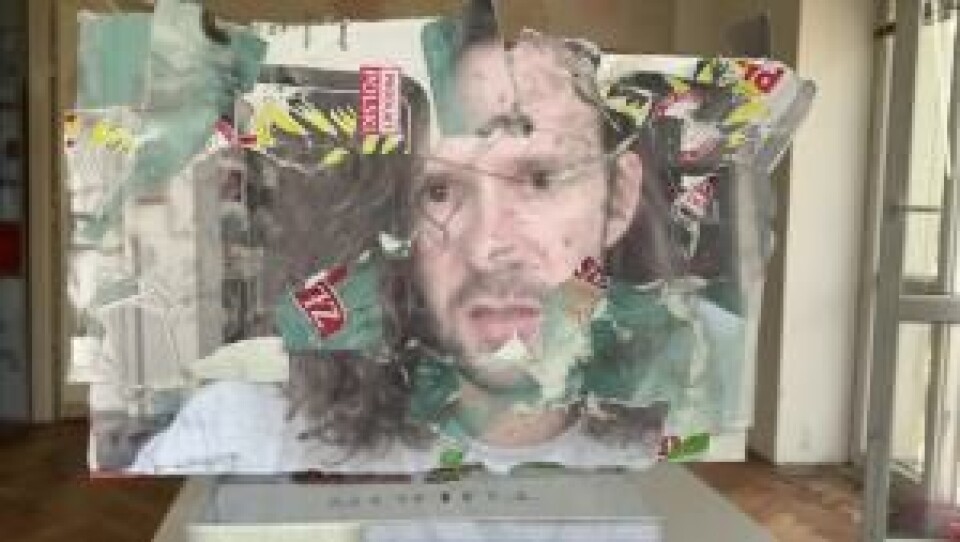
Theatre vs sport
As I write this article (early May), it looks as though the state of the theatre quarantine will continue for at least a few more months. Theatres have already announced that the end of season, spring and summer festivals (including Warsaw Theatre Meetings and Malta in Poznań) have been cancelled; they may take place in the autumn unless there is a second epidemic wave. The artists’ bitterness is all the greater because the government has already decided to ease the restrictions on sports: athletes may train and play us usual, albeit without an audience. Opera director Tomasz Cyz wrote on his Facebook profile: ‘If theatre and music life has moved to the web, and we all have to learn new skills to perform our beloved professions, shouldn’t footballers also be restrictedto play the FIFA computer game?’ It would be hard to find a more relevant comment.

